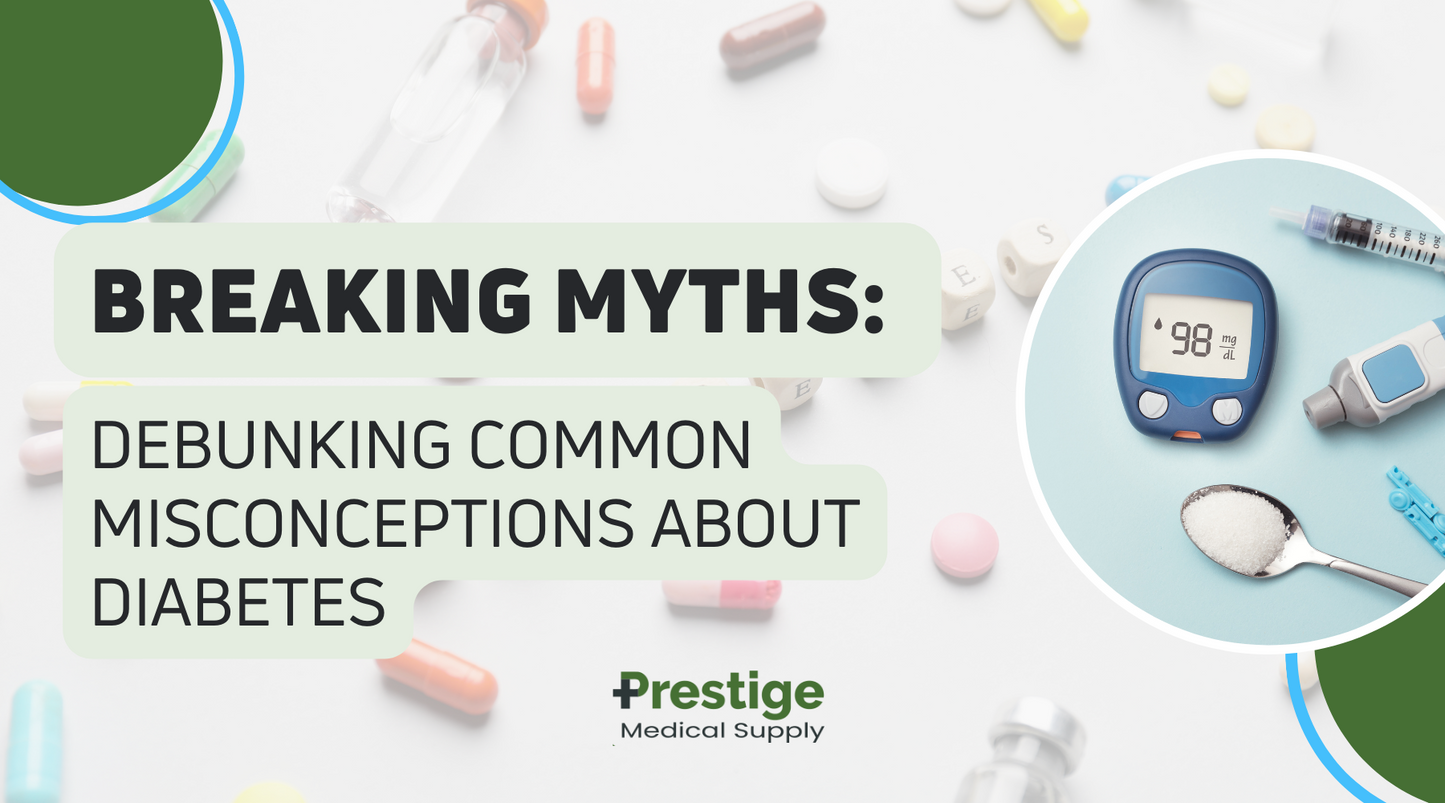

Diabetes is a complex and widely misunderstood condition that affects millions of people worldwide. Unfortunately, there are several common myths and misconceptions surrounding diabetes that can lead to misunderstandings, stigma, and even harmful practices. In this article, we aim to debunk these myths and provide accurate information about diabetes to promote awareness and understanding. So, let's dive into the truth behind these common misconceptions.
Living with diabetes can be challenging, but it's crucial to separate fact from fiction when it comes to understanding the condition. By debunking these diabetes myths, we can empower individuals with diabetes and foster a supportive environment.
← Older post Newer post →

